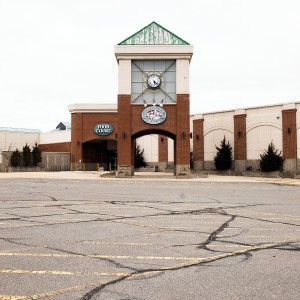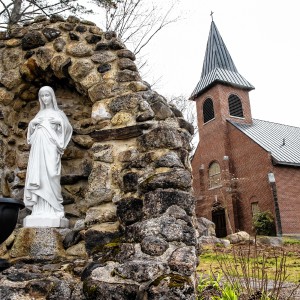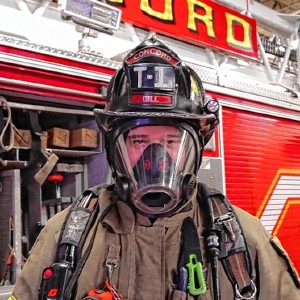Man convicted in 2010 murder at Concord prison appeals to state’s highest court
| Published: 09-14-2016 10:23 PM |
A man convicted of helping kill a fellow Concord inmate in 2010 says a superior court judge restricted the defense’s cross-examination of key witnesses at trial and erred in not allowing the testimony of two others.
William Edic, 34, has taken his case for a new trial to the New Hampshire Supreme Court, where oral arguments were held Wednesday morning.
Edic was sentenced in spring 2015 to 38 years in prison for helping kill Anthony Renzzulla on behest of his white supremacist gang, the Brotherhood of White Warriors. Prosecutors say Edic and another gang member lured Renzzulla into a third-floor cell block and then jumped him, kicking and stomping his head into the concrete floor on July 26, 2010.
Renzzulla, a frail 42-year-old inmate who walked with a cane, was eventually found unconscious near a pay phone and died 16 months later from his injuries. The gang had suspected Renzzulla of snitching on their members (another inmate later admitted in court that he had been the informant, not Renzzulla).
Edic’s accomplice, Thomas Milton, received the same punishment in Merrimack County Superior Court and has also filed an appeal.
During oral arguments Wednesday, Edic’s appellate attorney, Christopher Johnson, said at least two state witnesses provided incriminating information about Edic to investigators to advance their own self-interests. However, the defense was unable to properly confront those witnesses – other convicted felons – about their true motivations for testifying, he said.
Johnson explained further in court documents how he believes defense attorneys were blocked from impeaching the credibility of at least two inmate witnesses. The trial court erred by not allowing jurors to hear recorded phone conversations made by the men as they shed light on the context in which the witnesses agreed to talk, he said.
For example, Michael Mendoza, a podmate who saw the attack, came forward in hopes that he would be granted early release on electronic monitoring with home confinement, Johnson said. Defense attorneys attempted to show that Mendoza’s marriage was unraveling, in part because of his incarceration, but maintain he downplayed the severity of the situation in front of jurors.
Article continues after...
Yesterday's Most Read Articles
 Steeplegate project to reopen to public comment as developer seeks to reduce required parking
Steeplegate project to reopen to public comment as developer seeks to reduce required parking
 A turbulent 50-year history: Inside the rise and fall of a tiny Catholic college in Warner
A turbulent 50-year history: Inside the rise and fall of a tiny Catholic college in Warner
 Students and staff welcome the opening of new Allenstown K-8 school
Students and staff welcome the opening of new Allenstown K-8 school
 High schools: Friday and Saturday results
High schools: Friday and Saturday results
 Hopkinton chocolatier transforms chocolates into works of art
Hopkinton chocolatier transforms chocolates into works of art
 School Board to vote on new Broken Ground principal nominee
School Board to vote on new Broken Ground principal nominee
He also denied leveraging information about the attack, with the goal of being enrolled in programs that would allow for his timely release, Johnson said. But defense counsel says Mendoza asked his wife by phone to contact prison officials about the programming opportunities available to him, and that he expressed frustration when she had not done so.
While defense attorneys say jurors would have been more critical of the evidence if they had heard the phone conversations, prosecutors say the verdict would not have changed.
Senior Assistant Attorney General Peter Hinckley told the state’s Supreme Court justices Wednesday that the trial court gave defense attorneys the freedom to cross-examine all witnesses, including on any motivations they may have had to lie.
He said both sides agreed that jurors should not hear the audio recordings when they were being used to refresh a witnesses’ memory. Further, he said, defense counsel was not blocked from impeaching Mendoza; rather, attorneys opted to use the audio recordings only to remind him of conversations. They neglected to follow up with requests to play audio before the jury or for purposes of his impeachment, Hinckley said.
Just as the playing of recorded phone calls made by inmates is in dispute, so is the trial court’s decision to prohibit two corrections officers from testifying. The defense argued that their testimony would have raised questions about the credibility of inmate witness, Randall Chapman, who pleaded guilty to a cleanup role in the attack.
Chapman, a former member of the Brotherhood of White Warriors, cooperated with the death investigation only after faced with disciplinary action in an unrelated assault. Chapman said he was the victim in the latter case. Defense attorneys, however, said Chapman went after fellow gang member and inmate, Joshua Hewitt, and then lied to cover his tracks.
Chapman testified that prison authorities had a video of Hewitt entering his cell. The cell, however, was not within view of the surveillance camera, prosecutors noted.
One officer viewed the video and concluded Chapman was the initial aggressor, and another saw the bruises suffered in the aftermath. The defense wanted the officers to testify, arguing Chapman had opened the door by introducing what otherwise would have been inadmissible evidence.
But the court precluded the testimony, saying officers’ legal conclusions from a video are hearsay and not permissible at trial.
The Supreme Court justices did not issue a decision Wednesday on Edic’s appeal. They took the matter under advisement and will issue an order at a later date.
(Alyssa Dandrea can be reached at 369-3319, adandrea@cmonitor.com or on Twitter @_ADandrea.)


 Granite Geek: Free government software for taxes – what could go wrong? (Not much, as it turns out)
Granite Geek: Free government software for taxes – what could go wrong? (Not much, as it turns out) To snuff out cancer, NH firefighters seek regular screenings
To snuff out cancer, NH firefighters seek regular screenings New Hampshire jury finds state liable for abuse at youth detention center and awards victim $38M
New Hampshire jury finds state liable for abuse at youth detention center and awards victim $38M Jurors hear closing arguments in landmark case alleging abuse at New Hampshire youth center
Jurors hear closing arguments in landmark case alleging abuse at New Hampshire youth center
